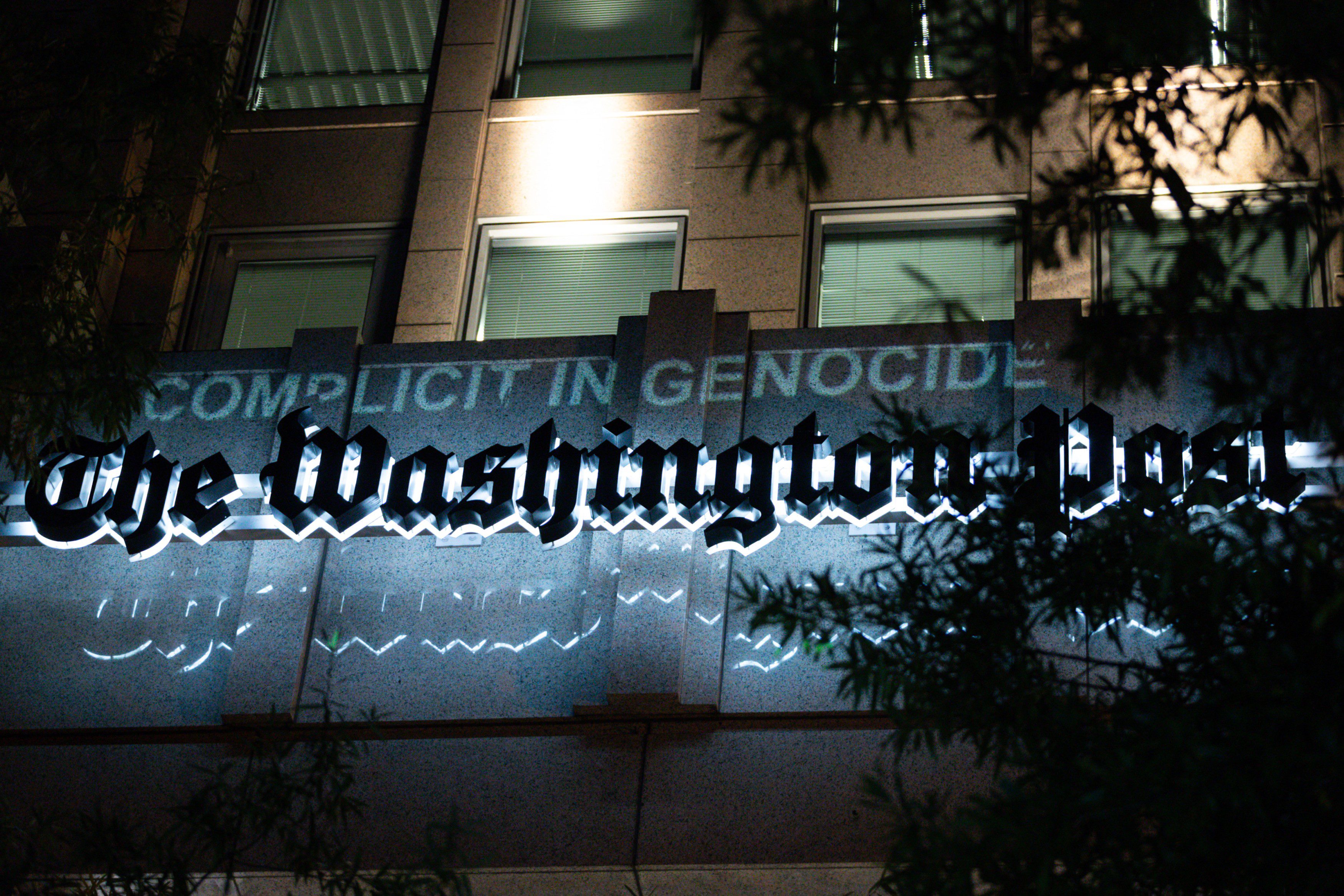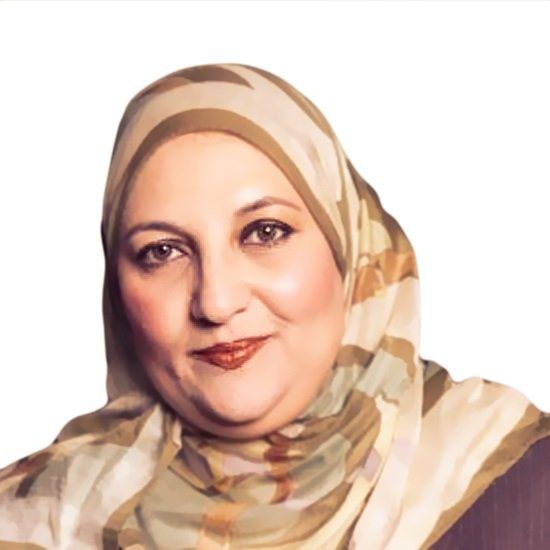As catastrophe has unfolded in Gaza, with tragic humanitarian consequences for the territory’s residents and far-reaching geopolitical implications for the region and beyond, the Western media has played a pernicious role. Not only has it been sharply skewed in its framing of the tragedy, but its spread of disinformation, rooted in undocumented, contradictory or false narratives, has had real human consequences on the ground.
Mainstream Western media outlets have largely adopted a certain, homogenous framing of events since the attack by Hamas on October 7 that killed 1,200 Israelis, including around 400 soldiers and security personnel. While the Western media has roundly framed October 7 as a “terrorist attack,” they have portrayed the corresponding Israeli assault on Gaza, which has killed over 15,000 civilians—overwhelmingly women and children—as an act of “self-defense.”
When Arab guests are interviewed by the Western media, often the default first question has been: “Do you condemn Hamas?” When guests, such as Palestinian Ambassador to the United Kingdom Husam Zomlot, refuse to answer this question, this often prompts a persistent pushback by the host, who insists on this accountability check before proceeding with the interview. In stark contrast, Western or Israeli guests are never asked on the same broadcast outlets to condemn Israel’s killings in Gaza.
False Framing
Equally disturbing is the adoption of Israel’s description of the crisis as a “war,” which creates a false parity between the occupier and the occupied, especially given the incredibly stark imbalance of military capabilities and resources between Hamas and Israel. The persistence of such biased framing shapes the overall narrative around the crisis as a terrorist attack that triggered legitimate retaliation, thus granting legitimacy to the disproportionate Israeli assault on Gaza’s 2.3 million civilians.
The danger of such framing is that it tells the audience not only who is the victim and who is the villain, but also who is worthy of grief and sympathy and who is not. By describing Israelis under 18 years old as “children” and Palestinians as “minors,” and focusing almost exclusively on the personal stories and suffering of Israeli citizens, Western media has been humanizing one side while dehumanizing the other.
Alongside this selective humanization, Western media has consistently neglected to provide sufficient context around the Hamas operation on October 7. By characterizing it as an “unprovoked attack,” the Western media has ignored 75 years of Israeli conquest of Palestine and 56 years of military occupation and the suffering of the Palestinian people under Israeli rule. This means Western audiences, who mostly have limited knowledge about this historical background, lack the much-needed context to understand the current situation. Even significant recent events, such as violence in the West Bank and provocations by Israeli soldiers and extremist Jewish settlers at the third-most holy site in the world for Muslims, the Al Aqsa Mosque, are ignored in relation to Gaza and Hamas. Sadly, this repetitive pattern of framing and labeling has been standard across Western media outlets, from the centrist CNN to the right-leaning Fox News.
This decontextualization, coupled with skewed and one-sided patterns of coverage, has even led some Western journalists to object to their own outlets’ handling of this crisis. Some British, Canadian, and American journalists have written open letters expressing their grievances, protested, or even quit their jobs to express their dismay over the coverage.
Unfounded Claims, Tragic Consequences
These patterns have been worsened in the current crisis by the spread of unfounded claims, such as Israeli accusations that Hamas fighters cut the heads of Israeli babies and burned their bodies, raped underage Israeli girls, and have secret tunnels and military facilities hidden under civilian infrastructure such as hospitals and refugee camps. These unverified narratives have both gone viral on social media and been featured prominently in mainstream outlets. They were even echoed by U.S. President Joe Biden, compelling the White House to subsequently roll back a claim that he had seen evidence of the alleged beheadings of Israeli babies.
On November 24, Laila Al-Arian, a twice Emmy award-winning Al Jazeera English producer tweeted: “Israel claimed there’s a Hamas command and control center under Al-Shifa hospital in Gaza. US media repeated the claims. Once it was clear this wasn’t true, everyone moved on. Palestinians died based on these lies, including ICU patients.” She likened the claims to false U.S. accusations that Saddam Hussein’s regime had weapons of mass destruction, a key justification for the 2003 invasion of Iraq.
This reflects an unfortunate pattern of Western media spreading disinformation, rather than doing journalistic due diligence of double-checking and verifying facts. As Al-Arian said, the circulation of such falsehoods and a subsequent failure to correct them comes with a high cost, including the loss of many innocent lives.
All these factors have had the unfortunate outcome of painting a false narrative around this tragic crisis in the minds of millions in the West. Words matter, as do framing and context. They matter most in the midst of an aggressive military campaign that has claimed thousands of innocent lives, mostly women, children and even babies in incubators. It is notable that while a lie about Iraqi soldiers snatching babies out of incubators in Kuwait was used to justify the first American invasion of Iraq, the reality of babies dying in incubators in Gaza due to Israeli actions did not lead to a ceasefire. Instead, the Western media has turned a blind eye and even perpetuated these stark double standards.
Social media, meanwhile, has been a double-edged sword in terms of the war of narratives. On the one hand, social media platforms have been important windows for alternative coverage, allowing the whole world to see the daily suffering of the Palestinian people, which hasn’t been possible via the mainstream Western media. This has helped trigger massive outrage, including huge pro-Palestinian protests all over the world. On the other hand, it has also helped spread many of the unfounded claims and unverified falsehoods adopted by mainstream Western media.
There is perhaps some hope in the fact that Western media have platformed Palestinian voices in greater number than ever before, and that massive street protests against Israel’s assault have taken place in capitals across the world. It is also encouraging that alternative coverage is visible via social media. Yet much more is needed to come close to a balanced and equitable coverage of this crisis and the broader conflict. Real hope lies in the shift of international public opinion and the coverage of alternative narratives on social media. Whether this can result in a positive shift in international media’s coverage of this inflammatory and sensitive issue moving forward remains to be seen.

